Child Counseling Therapy for ADHD provides a supportive space for children to navigate their feelings and behaviors. We focus on tailoring strategies to meet each child’s unique needs. By using techniques like cognitive-behavioral therapy, play therapy, and mindfulness, we empower kids to gain self-awareness and manage their symptoms effectively. Our approach also encourages parent participation, helping families create a nurturing environment at home. Together, we work on skills essential for emotional healing and coping with challenges. If you’re enthusiastic to explore this further, there’s so much more valuable information waiting to guide you on this journey.
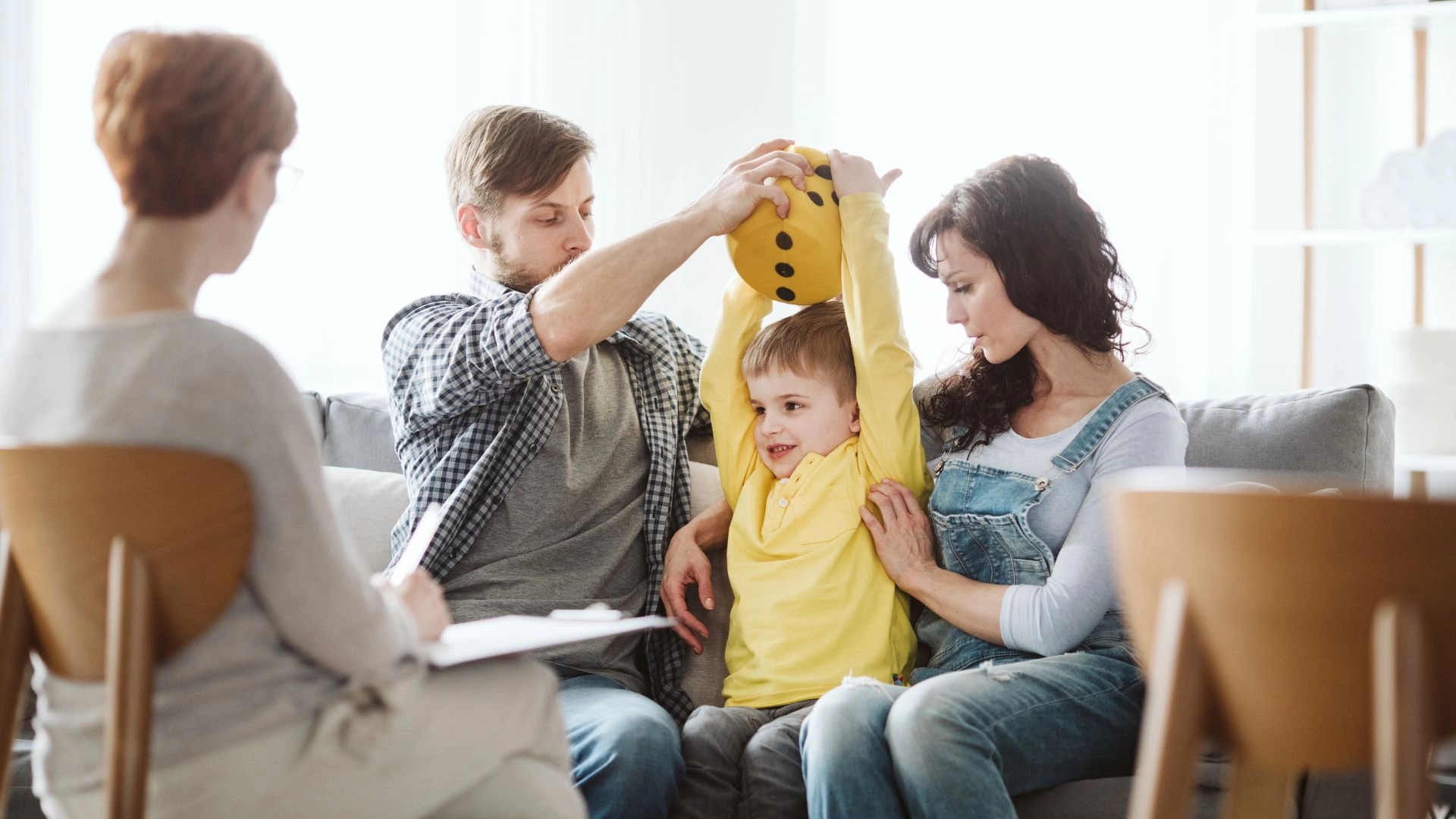
About Child Counselling Therapy
Child counseling therapy offers a supportive space where we can assist children navigate their feelings and behaviors, particularly when dealing with challenges like ADHD. As child therapists, we recognize the unique struggles children face, and our goal is to provide effective ADHD support tailored to each child’s needs. In therapy for kids, we often use behavioral therapy and cognitive-behavioral therapy techniques, which can greatly improve emotional regulation and coping skills.
Through our sessions, we aim to empower children by teaching them strategies that enhance their self-awareness and help manage their symptoms. We also encourage parents to participate in parent training for ADHD, equipping them with tools to support their child at home effectively. This collaborative approach guarantees that both children and their families feel supported throughout the ADHD treatment process.
Together, we create a safe environment where children can express themselves openly. By fostering a trusting relationship, we can help them develop the skills they need to thrive. Ultimately, our commitment to child counseling therapy is about nurturing resilience, enhancing emotional understanding, and paving the way for a brighter future for children with ADHD.
ADHD symptoms, diagnosis, and its impact on child development
Understanding ADHD symptoms and how they’re diagnosed is vital for us to effectively support children and recognize the significant impact this condition can have on their development. ADHD symptoms can manifest as attention problems, hyperactivity, and impulsivity, which can lead to challenges in various areas of life, including school and social interactions.
When we look at ADHD diagnosis, it involves thorough assessments that consider a child’s behavior in different settings and how these behaviors affect their overall functioning. This condition can also be linked to emotional dysregulation, which complicates relationships and learning experiences.
The impact of ADHD on child development is profound, often manifesting as behavioral disorders in children. These challenges can hinder their ability to develop essential coping mechanisms for ADHD, which are vital for managing daily life.
Fortunately, recognizing these symptoms allows us to explore ADHD treatment options tailored to each child’s needs, promoting their growth and emotional well-being. By collaborating with parents, teachers, and healthcare professionals, we can create a supportive environment that fosters resilience and helps children thrive despite the challenges they face.
The Role of Child Counseling in Managing ADHD
We aim to equip both children and parents with the tools necessary for successful ADHD management. Together, we’ll navigate the complexities of ADHD, ensuring that every child has the opportunity to reach their full potential. Through consistent ADHD counseling, we can help children not only cope but truly flourish in their unique journeys.
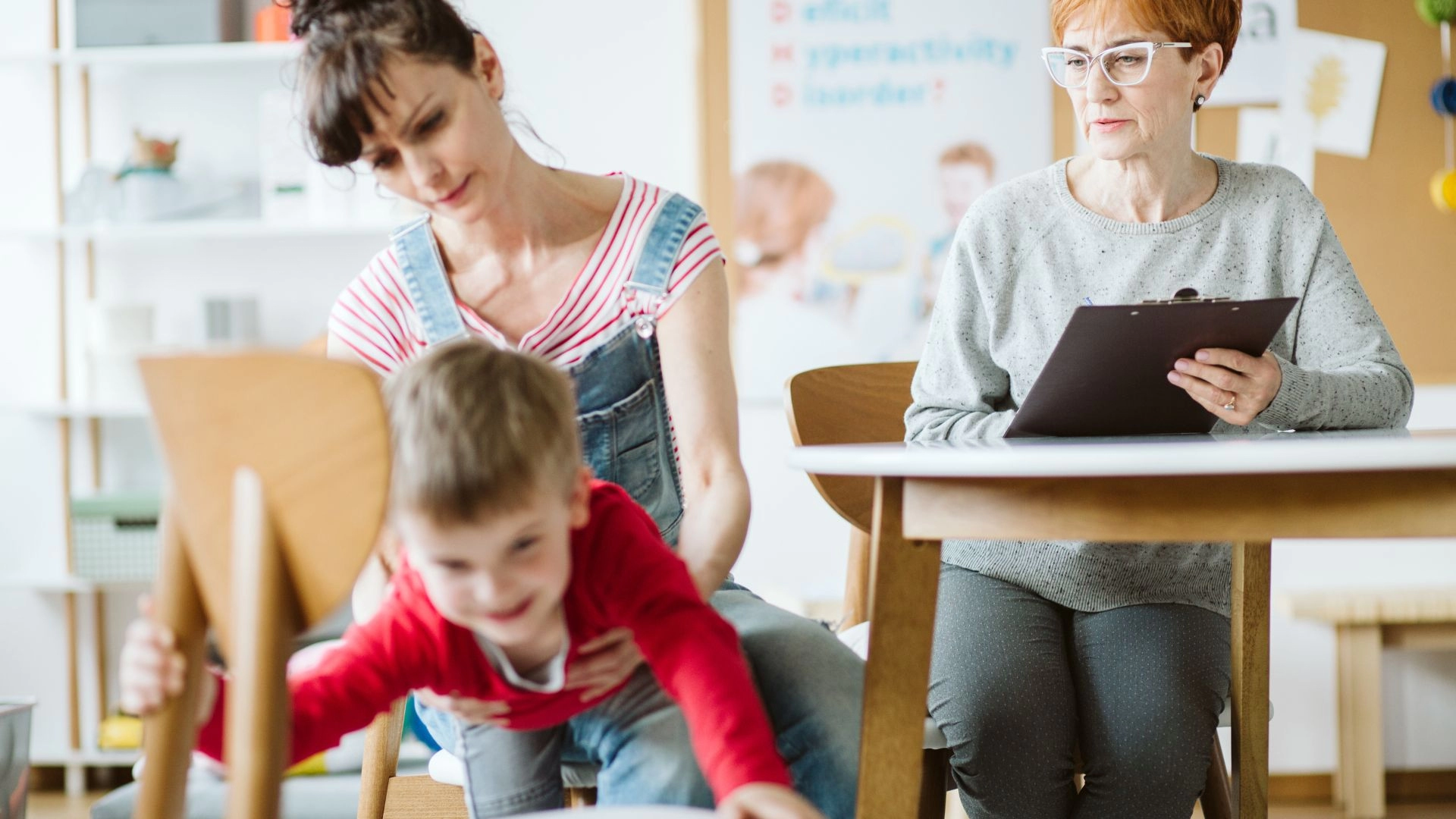
Cognitive Behavioral Therapy (CBT) for ADHD
Cognitive Behavioral Therapy (CBT) offers a structured approach that helps children with ADHD develop practical skills for managing their thoughts and behaviors more effectively. Through child counseling therapy, we guide kids in understanding the connection between their feelings, thoughts, and actions. This is particularly important as they face various ADHD challenges daily.
In our sessions, we focus on teaching coping strategies that empower children to tackle ADHD behavior management. With the support of ADHD coaching, kids learn to set achievable goals, improve their self-discipline, and enhance their organizational skills. We also encourage participation in ADHD support groups, which provide a sense of community and shared experiences, reinforcing what they learn in therapy.
CBT is not just about addressing ADHD; it can also help with therapy for kids with anxiety, as we explore ways to reduce stress and improve overall emotional well-being. We emphasize the importance of ADHD self-care, equipping children with tools to manage their symptoms and thrive in their daily lives. By fostering a supportive environment, we can help children navigate their unique journeys with confidence and resilience.
Play Therapy for ADHD: A Creative Approach
While CBT provides valuable skills for managing ADHD, play therapy introduces a creative and engaging way for children to express themselves and explore their feelings in a safe environment. This form of therapy for ADHD in children uses play as a medium, allowing kids to communicate and process emotions through therapeutic play. It’s an effective approach that incorporates ADHD-friendly activities to foster engagement.
Through various child therapy techniques, we can guide children in developing ADHD coping skills while also promoting emotional regulation in children. By using toys, games, and storytelling, we create opportunities for child behavior modification in a non-threatening manner. This not only enhances their ability to manage impulses but also supports their overall child mental wellness.
As we encourage children to navigate their emotions through play, we help them build resilience and confidence. Additionally, incorporating school support for ADHD can reinforce these skills outside the therapy setting. Ultimately, play therapy serves as a valuable complement to other strategies, creating a holistic approach to addressing ADHD symptoms and nurturing a child’s emotional health. Together, we’re paving the way for a brighter, more balanced future for our children.
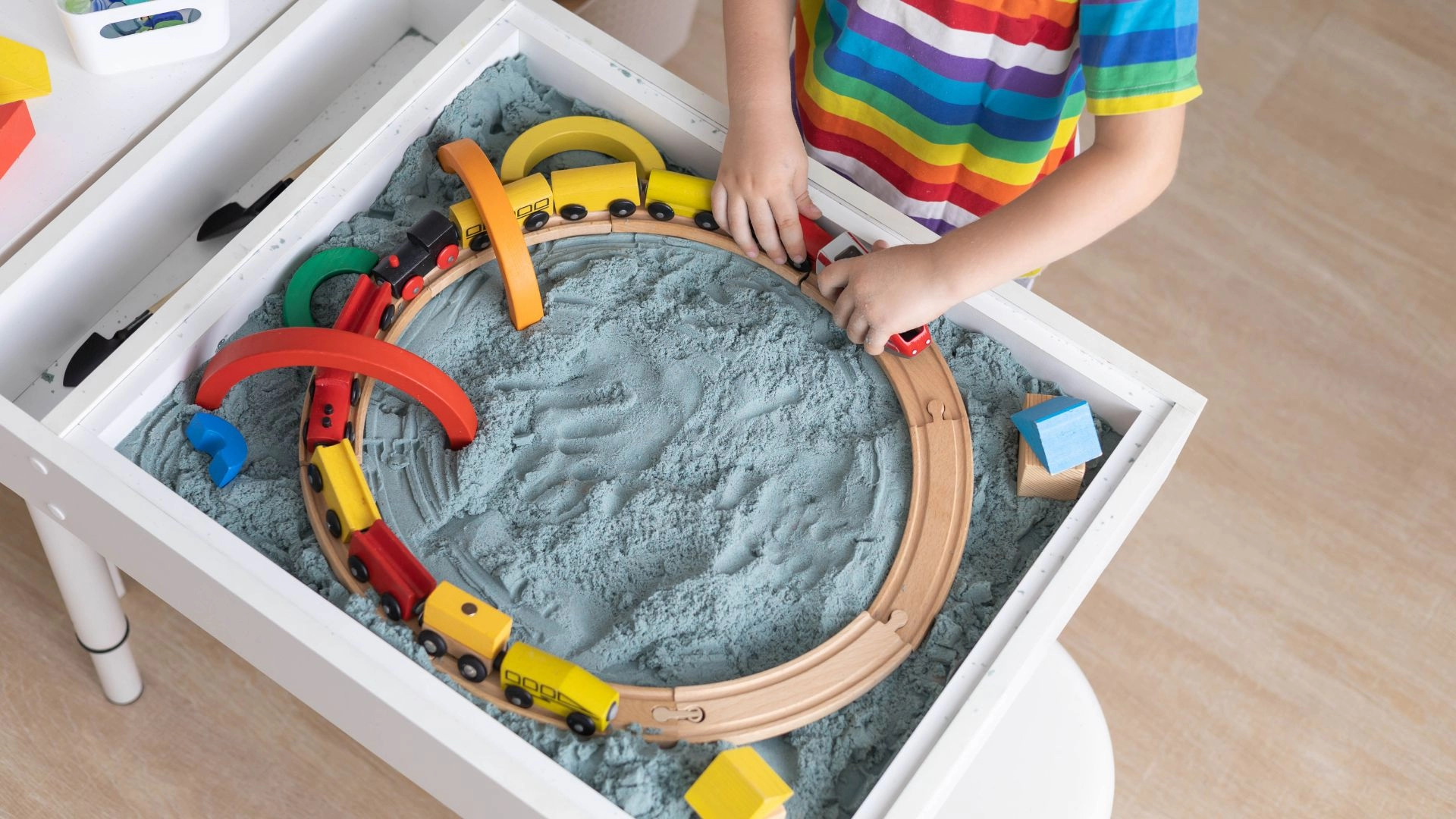
School Counseling and ADHD Support
In today’s educational landscape, school counseling plays an essential role in providing support for children with ADHD, helping them thrive academically and socially. By integrating child counseling therapy into school systems, we create a nurturing environment where ADHD in children can be effectively managed.
School counseling provides critical ADHD evaluations and testing to identify individual needs. Once we comprehend these needs, we can work with ADHD specialists to develop tailored ADHD accommodations. These might include modified assignments, extended test times, or quiet spaces for focused work.
Behavioral interventions are also fundamental. School counselors can implement strategies that promote positive behaviors, enhancing ADHD and school performance. By fostering strong communication between teachers, parents, and counselors, we guarantee that everyone is on the same page.
Additionally, we can utilize ADHD resources to educate staff and peers, fostering a more understanding environment. Together, we can empower children with ADHD to navigate challenges and celebrate their unique strengths. With the right support, we can help these kids not only succeed in school but also build meaningful relationships and self-esteem, setting the stage for a bright future.
Parent-Child Therapy for ADHD
Building on the support provided in school counseling, parent-child therapy for ADHD plays an important role in fostering stronger relationships and enhancing coping strategies within the family unit. In these sessions, we can explore our child’s emotional development and address any child behavior disorders they may be facing. This supportive therapy for children allows us to better understand their experiences while providing us with vital ADHD parenting tips.
Through parent-child therapy, we learn effective communication techniques and strategies to help manage challenges associated with ADHD. By participating in cognitive therapy for kids, our children can develop necessary skills for regulating emotions and behaviors. As we work together, we also reinforce family support therapy, creating a nurturing environment that promotes growth and resilience.
Early intervention therapy is essential, and the insights gained from these sessions can greatly impact our child’s overall well-being. By committing to this process, we’re not only helping our child, but we’re also strengthening our bond as a family. Together, we can navigate the complexities of ADHD and create a positive path forward.
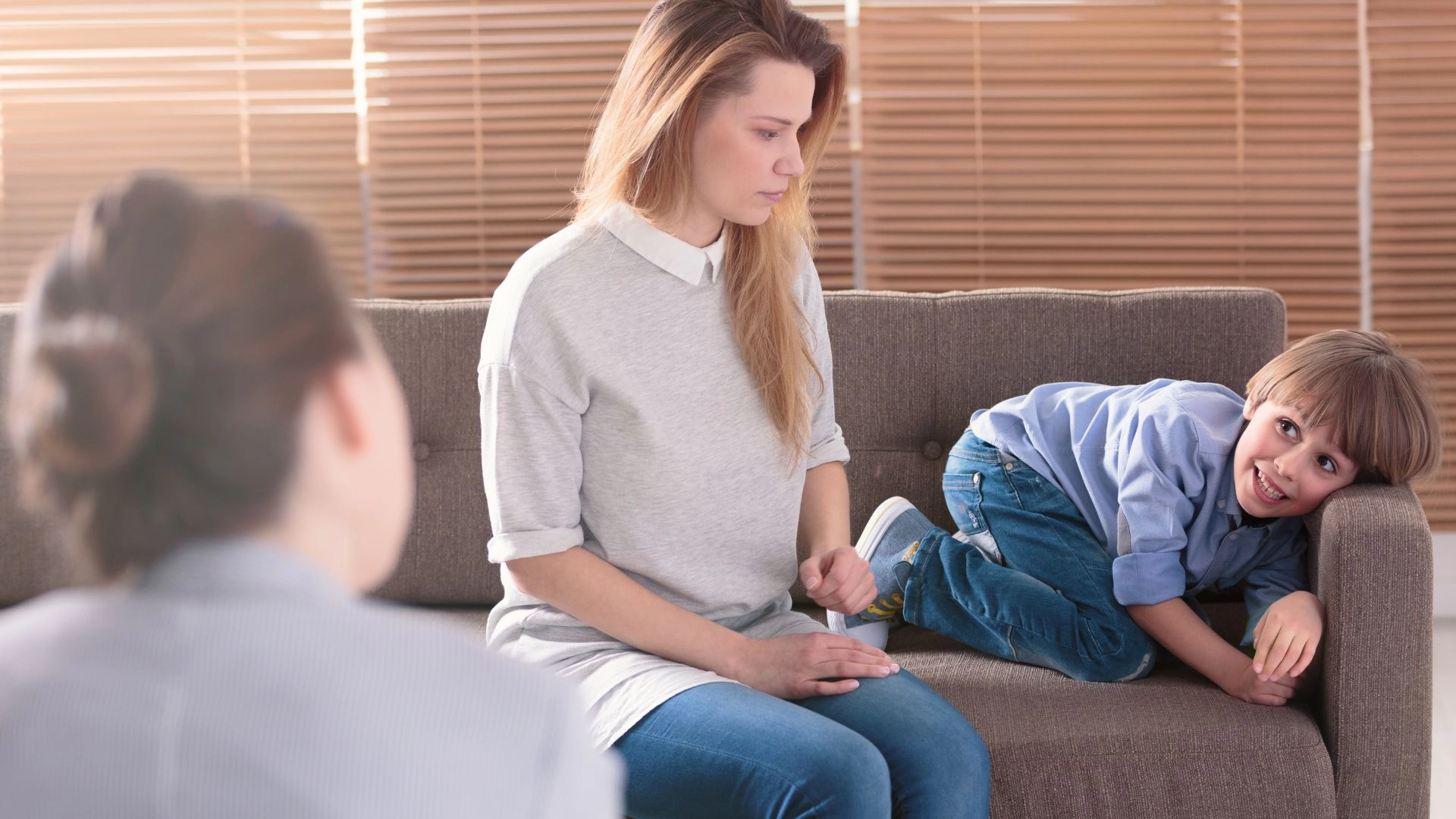
Emotional Support for Children with ADHD
Providing emotional support for children with ADHD is fundamental, as it helps them navigate their feelings and fosters a sense of security and understanding within the family. We all know that ADHD can often lead to emotional dysregulation, making it essential to address the emotional well-being of children. Through child counseling therapy, we can create an environment where they feel safe to express their emotions.
Engaging in therapy for special needs children allows us to focus on their unique challenges, promoting resilience and self-esteem. Child-focused therapy sessions help children learn effective stress management strategies, which can empower them in their day-to-day lives. By integrating parent-child therapy, we can strengthen our bonds and enhance communication, creating a supportive atmosphere at home.
As we navigate therapy for troubled youth, it’s critical to remember that emotional support is a continuous process. By encouraging open dialogue and validating their feelings, we help our children feel understood and valued. Together, we can cultivate a nurturing environment that aids in their emotional growth and overall development, paving the way for a brighter future.
Behavioral Therapy for ADHD in Children and Adolescents
Behavioral therapy offers a structured approach to help children and adolescents with ADHD develop essential skills for managing their behaviors and improving their overall functioning. Through child behavioral therapy, we focus on addressing the specific focus issues and impulsive behavior that often accompany this neurodevelopmental disorder.
In our sessions, we utilize various ADHD therapy techniques that promote positive behavior changes. For instance, we might implement reward systems, helping children learn the value of self-discipline and patience. This type of therapy for children isn’t just about managing symptoms; it’s about emotional healing for children, providing them with the tools they need to thrive.
Adolescent counseling plays a significant role here, as older children may face unique challenges that require tailored strategies. We encourage open communication, allowing adolescents to express their feelings and concerns. By fostering a supportive environment, we can help them navigate their experiences more effectively.
Ultimately, our goal is to empower both children and adolescents to take control of their behaviors, fostering a sense of confidence and accomplishment. Together, we can work towards a brighter future, where ADHD doesn’t define who they are.
Group Therapy for Kids with ADHD
Engaging in group therapy can be a transformative experience for kids with ADHD, as it fosters connection and understanding among peers facing similar challenges. In group therapy for kids, we create a safe space where children can share their experiences and feelings related to their ADHD diagnosis process. This shared journey helps promote ADHD awareness and encourages kids to recognize they’re not alone in their struggles.
Through child counseling therapy, we focus on developing essential social skills, addressing ADHD and impulsivity, and learning effective coping strategies. The supportive environment allows our children to practice these skills together, making it an integral part of therapy for school-aged children. We also incorporate engaging child therapy activities that promote teamwork and communication, helping kids feel more comfortable interacting with others.
Group therapy not only enhances social skills but also builds self-esteem, as children learn to support one another. By participating in this collaborative process, kids gain valuable insights into their behaviors and develop healthier relationships, setting the stage for future success. Ultimately, group therapy for kids with ADHD is about fostering connection, understanding, and personal growth.
Family therapy plays an essential role in managing ADHD, as it helps families understand the challenges they face together and fosters a supportive environment for growth and healing. By engaging in family therapy, we can learn about attention deficit hyperactivity disorder (ADHD) and how it affects not just our child but the entire family dynamic. This understanding can guide us in implementing effective strategies, like an individualized education plan, tailored to our child’s unique needs.
Through parent-child therapy, we can develop stronger communication skills and create a nurturing atmosphere that encourages our child’s growth. We can also explore an ADHD-friendly diet, which plays a significant role in overall well-being. In addition, family therapy offers crisis intervention for children, helping us navigate tough moments with empathy and clarity.
Art Therapy for Children with ADHD
Art therapy offers a creative outlet for children with ADHD, allowing them to express their feelings and thoughts in a way that words sometimes can’t capture. Through art therapy for kids, we can help children navigate their emotions and enhance their self-expression, which is often challenging for them. This approach is part of various child counseling therapy techniques that we use to support their mental well-being.
In our child therapy programs, we emphasize child-centered therapy, where the child’s needs and interests guide the process. Art therapy can also aid in developing skills related to ADHD and organization, helping children visualize and manage their tasks better. Additionally, it promotes child resilience therapy, enabling kids to cope with challenges more effectively.
We’ve seen how engaging in artistic activities can alleviate anxiety in children and provide a sense of accomplishment. It serves as a form of psychological therapy for children that fosters healing and personal growth. By incorporating early childhood therapy principles, we create a nurturing environment where children feel safe to explore their thoughts and feelings through art, ultimately enhancing their overall emotional health and well-being.
Grief Counseling for Families Affected by ADHD
Supporting children with ADHD often involves not just the individuals themselves, but also their families, especially when they face the complexities of grief related to their child’s challenges. When our children struggle with ADHD and emotional issues, it can lead to feelings of loss—loss of normalcy, loss of expectations, and sometimes, loss of connection. Grief counseling for families affected by ADHD can provide a safe space for us to work through these feelings together.
Through child counseling therapy, we can address not only our child’s needs but our own as well. Therapeutic support for families can help us navigate the emotional landscape that accompanies ADHD, offering parenting support and guidance. Child psychotherapy, including trauma-informed therapy, can also be beneficial in managing child anxiety treatment and building child social skills.
As we engage in adolescent therapy, we create an environment where our children feel understood and supported. Ultimately, we’re not just helping our children cope with ADHD; we’re also healing as a family, fostering resilience, and learning to embrace the journey together.
Mindfulness and Stress Management for Children with ADHD
Mindfulness and stress management techniques can be incredibly beneficial for children with ADHD, helping them cultivate a sense of calm and focus in their daily lives. By incorporating mindfulness for kids into our child counseling therapy sessions, we can support children in learning how to manage their hyperactive behavior and improve their focus.
These practices teach kids to become more aware of their thoughts and feelings, which can be especially helpful for those experiencing executive function disorder. Through simple techniques like deep breathing or guided imagery, we can foster focus improvement and reduce anxiety that often accompanies ADHD.
In our parent-child therapy sessions, we can explore these mindfulness strategies together, encouraging families to implement ADHD lifestyle changes at home. Stress management for children with ADHD not only aids in emotional regulation but also enhances overall well-being.
Contact Our Child Counselling Therapy Center for ADHD Support
If you’re seeking compassionate and effective support for your child with ADHD, our counseling therapy center is here to help. We acknowledge the unique challenges that come with ADHD, whether it’s managing a hyperactive child or addressing childhood anxiety. Our child counseling services are designed to provide tailored strategies that promote mental health in kids.
Through our Child Counseling Therapy, we create a safe space where children can express themselves and learn essential skills. We also offer parent-child therapy, allowing families to work together in understanding and managing ADHD. Our trained professionals help develop time management strategies that empower your child to succeed in daily tasks.
While we recognize that some families may consider ADHD medication, we emphasize a holistic approach, integrating therapy for childhood trauma and emotional support. Our goal is to foster resilience and coping mechanisms that last a lifetime.
If you’re ready to take the next step in supporting your child, don’t hesitate to reach out to our counseling therapy center. Together, we can navigate this journey and help your child thrive.
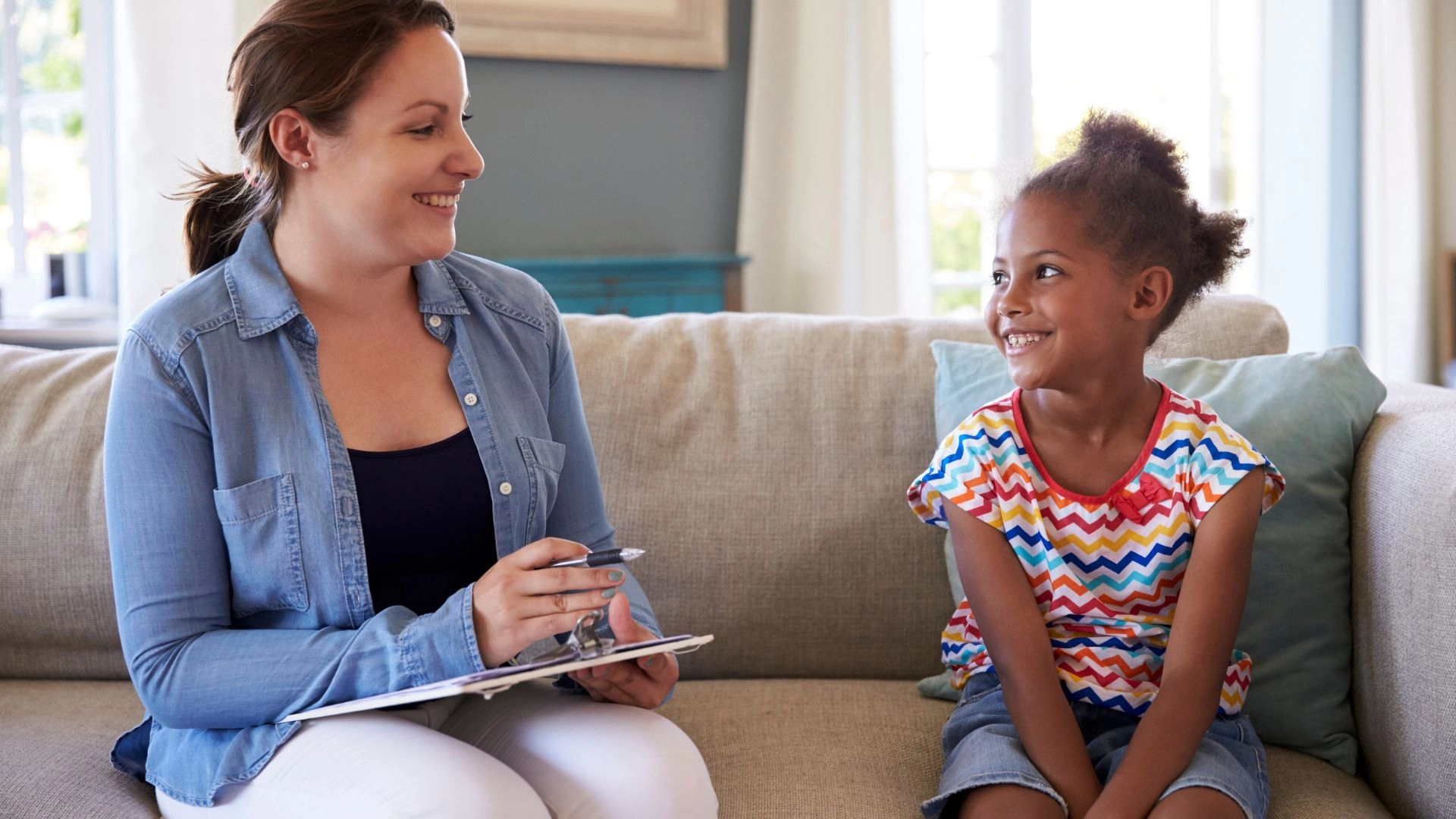
Frequently Asked Questions
How Long Does Child Counseling Therapy for ADHD Typically Last?
When we think about how long counseling typically lasts, it really varies based on individual needs and goals. Generally, we’ve seen that sessions can range from a few weeks to several months. It’s important to remember that progress isn’t always linear, and some may need more time than others. We’re here to support each other through this process, ensuring that everyone feels comfortable and confident while working toward their goals.
What Should I Expect During the First Counseling Session?
During our first counseling session, we can expect a warm and welcoming environment. We’ll share our thoughts and feelings, allowing the counselor to understand our unique experiences. They’ll ask questions to get to know us better and help identify our goals. It’s a time for us to express any concerns and begin building a trusting relationship. Remember, it’s perfectly normal to feel a bit nervous, but we’re in this together.
Are There Any Side Effects of Counseling for ADHD?
When we think about the side effects of counseling, it’s important to remember that it’s generally a safe and supportive process. We might experience some initial discomfort, like feeling vulnerable or uncertain, but these feelings usually pass as we become more comfortable. Counseling can also lead to positive changes in our thoughts and behaviors, which can feel overwhelming at first. Overall, the benefits often outweigh any temporary challenges we might face.
How Do I Choose the Right Therapist for My Child?
Choosing the right therapist for our child can feel overwhelming, but it’s important we take our time. Let’s start by identifying our child’s specific needs and preferences. We should look for a therapist with experience in those areas and check their credentials. It’s also helpful to reflect on their approach—some kids respond better to certain styles. Finally, trust our instincts; we’ll know when we find someone who feels like the right fit for our family.
Can Counseling Replace Medication for ADHD Treatment?
When it comes to ADHD treatment, we often wonder if counseling can replace medication. While counseling offers valuable strategies and support, it’s not a one-size-fits-all solution. Many of us find that a combination of both can be the most effective approach. It’s crucial to evaluate each person’s unique needs and consult with professionals to determine the best path forward. Together, we can explore all options and make informed decisions for our loved ones.
